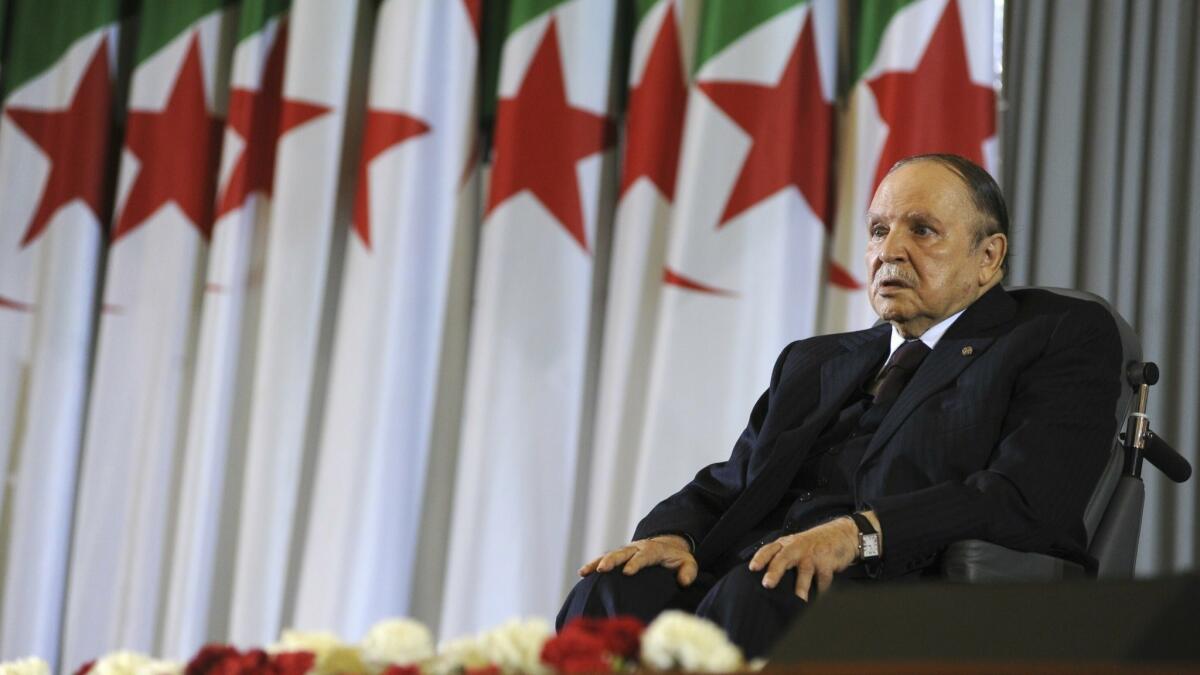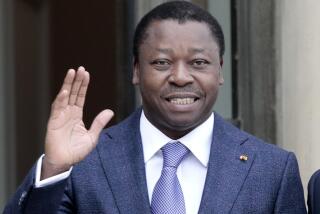Algeria’s president resigns following weeks of relentless protests

Reporting from Beirut — Algerian President Abdelaziz Bouteflika quit his job Tuesday after nearly 20 years as ruler of the North African nation, succumbing to weeks of mass protests demanding he step down.
“I have the honor to formally notify you of my decision to terminate my term as president of the republic, as from today,” began a statement attributed to the 82-year-old leader by the state-run Algeria Press Service.
He made the decision “to contribute to easing the hearts and minds of my compatriots and to enable them to plan together for a better future for Algeria, which they legitimately aspire to,” it said.
Once a charismatic politician who helped the country emerge from a civil war in the 1990s, he suffered a stroke in 2013, rendering him unable to walk and mostly mute. He was receiving treatment in Geneva earlier this year when he released a statement saying he would seek a fifth term in April’s elections.
That announcement spurred street protests involving tens of thousands of people. Despite repeated concessions, including canceling plans for a fifth term, the demonstrations grew, calling on Bouteflika to “step down and nothing more.”
In recent days, several of his allies, including the army’s chief of staff, Lt. Gen. Ahmed Said Salah, called for the government to activate constitutional article 102, which would make the speaker of the upper house of parliament, the Council of the Nation, leader for 90 days while new elections are held. It was unclear Tuesday what the succession process would be.
In his resignation statement, Bouteflika said he had “taken the appropriate measures, as part of my constitutional prerogatives, to ensure that the state and its institutions will continue to normally function during the transition period, leading to the election of the new president of the republic.”
Many opposition figures viewed that statement as yet another attempt by “Le Pouvoire” — or “The Power,” as Algerians often call the government’s political, military and business cronies — to preserve its status.
Most of the protesters are young people across the political spectrum, who, despite Algeria’s fossil fuel riches, face unemployment and lack of services.
Festive thoughts, however, dominated the mood on Tuesday.
Moments after Bouteflika’s announcement, thousands of people raced to Algiers’ streets to celebrate. The Algerian Ennahar daily published images of crowds in main squares, while video on social media showed people cheering slogans in support of the army.
The U.S. said Algerians would determine how the country would transition to a new leader.
“Questions about how to navigate this transition in Algeria,” said State Department spokesman Robert Palladino, in a briefing to reporters, “that is for the Algerian people to decide.”
More to Read
Sign up for Essential California
The most important California stories and recommendations in your inbox every morning.
You may occasionally receive promotional content from the Los Angeles Times.











